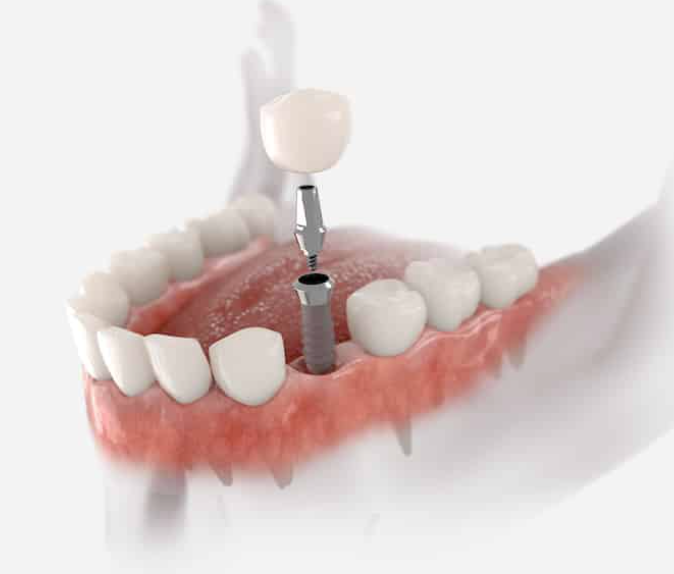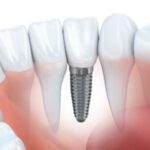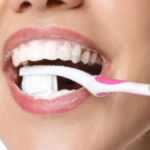Why no dairy after dental implant?
Following dental implant surgery, it’s essential to avoid dairy products to prevent potential inflammation and slow down the healing process. Dairy products, such as milk, cheese, and yogurt, contain compounds like casein, which can irritate the implant area and increase the risk of infection.
Dental implant surgery requires special dietary considerations to promote optimal healing and recovery. Your diet immediately after the procedure plays a crucial role in ensuring successful outcomes. While dairy products are nutritious, they can harbor bacteria and have the potential to interfere with the healing process.
Understanding the reasons behind the recommendation to avoid dairy after dental implants can help you make informed dietary choices for a smooth and successful recovery.
Let’s explore the specific reasons dentists advise against consuming dairy products following dental implant surgery and discover suitable alternatives to support your healing journey.
Introduction to Post-implant Care
After dental implant surgery, it is advised to avoid dairy products as they can harbor bacteria and cause inflammation. Dairy products like milk, cheese, and yogurt contain compounds that can irritate the implant area and slow down the healing process.
| Immediately following dental implant surgery, it is important to avoid dairy products. Dairy products like milk, cheese, and yogurt contain compounds like casein, which can irritate the implant area and slow down healing.
Dairy products can harbor bacteria and cause inflammation, increasing the risk of infection. Therefore, for the first few weeks after dental implant surgery, it is recommended to avoid foods that are acidic, chewy, crunchy, spicy, sticky, or tough. Following the dietary guidelines provided by your dentist or oral surgeon is crucial for a successful post-implant care and optimal healing. Remember to consult with your dental professional for specific dietary recommendations based on your individual needs. |
Dairy Products and Implant Healing
| Immediately following dental implant surgery, it is recommended to avoid dairy products. This is because dairy products such as milk, cheese, and yogurt contain compounds like casein, which can irritate the implant area and slow down the healing process. In addition, dairy products have the potential to harbor bacteria, increasing the risk of infection.
During the first few weeks after dental implant surgery, it is important to avoid foods that are acidic, chewy, crunchy, spicy, sticky, or tough. These types of foods can put additional stress on the implant site and potentially cause inflammation or complications. |
Specific Concerns With Dairy Post-surgery
After dental implant surgery, it’s essential to avoid dairy products because of the potential risk of infection. Dairy items like milk, cheese, and yogurt contain compounds such as casein, which can irritate the implant area and hinder the healing process. For the first few weeks post-surgery, it’s advisable to steer clear of acidic, chewy, crunchy, spicy, sticky, or tough foods to promote optimal recovery.
Nutritional Alternatives to Dairy
Following dental implant surgery, it is recommended to avoid dairy products as they can harbor bacteria and cause inflammation. Dairy products, such as milk, cheese, and yogurt, contain compounds that can irritate the implant area and slow down the healing process.
Instead, opt for soft and easily chewable foods like smoothies, yogurt, ice cream, and mashed potatoes.
| Non-Dairy Sources of Calcium and Protein: |
| After dental implant surgery, it’s important to avoid dairy products as they can harbor bacteria and cause inflammation. However, there are plenty of non-dairy sources of calcium and protein that can help you maintain a healthy diet.
Some examples of non-dairy calcium sources include leafy greens (such as kale and spinach), almonds, and fortified plant-based milks. For protein, try quinoa, lentils, tofu, and tempeh. It’s important to also consume foods that are safe to eat after surgery. |
| Safe Foods to Consume After Surgery: |
| Immediately following dental implant surgery, it’s best to avoid foods that are acidic, chewy, crunchy, spicy, sticky, or tough. These can cause irritation or damage to the implant area, which can slow down healing. Instead, opt for foods that require little chewing and are easy to swallow.
As you progress in your recovery, you can gradually introduce more solid foods, but always be mindful of avoiding anything that could cause damage or irritation to the implant area. |
Reintroducing Dairy
Most dentists recommend consuming soft/ liquid foods like smoothies, pudding, applesauce, mashed potatoes, creamy soups, and broth immediately after surgery. The following week after surgery, you can consume foods that require little chewing, like pancakes and macaroni and cheese.
Dairy products like milk, cheese, and yogurt contain compounds like casein, which can irritate the implant area and slow down healing. It is crucial to consult your dental professional about the timing for reintroducing dairy products and the overall healing progress.
Myths vs. Facts
There are many misconceptions about the consumption of dairy products after dental implant surgery. Some people believe that dairy can help with the healing process, while others think that it should be avoided altogether. The truth is that dairy products can actually harbor bacteria and cause inflammation, which can slow down the healing process and increase the risk of infection.
It is important to avoid dairy products immediately after surgery and for the first few weeks while the implant area is still healing. Instead, you can consume soft/ liquid foods like smoothies, pudding, applesauce, mashed potatoes, creamy soups and broth, and other such foods that require little chewing.
Once the implant area has fully healed, you can slowly start reintroducing dairy products into your diet.
Long-term Care for Dental Implants
After dental implant surgery, it’s important to avoid dairy products due to their potential to harbor bacteria and cause inflammation. During the initial weeks following the procedure, it’s best to steer clear of acidic, chewy, crunchy, spicy, sticky, or tough foods. Dentists typically recommend consuming soft foods like yogurt, ice cream, pudding, mashed potatoes, and smoothies immediately after surgery.
In the following weeks, opt for foods that require minimal chewing, such as pancakes and macaroni and cheese. Regular oral hygiene and dental check-ups are crucial for the long-term care of dental implants, ensuring their durability and stability.
Frequently Asked Questions
How long should I wait before eating dairy?
After dental implants, avoid dairy for the first few weeks to promote healing. Opt for soft, non-acidic foods.
Can I eat ice cream after dental implants?
After dental implants, avoid ice cream and dairy products immediately after surgery. Stick to soft foods like pudding. Gradually introduce other foods that require minimal chewing in the following weeks.
Can I eat yogurt after dental implant surgery?
Yes, you can eat yogurt after dental implant surgery. It is a soft and easy-to-eat option that can be consumed immediately after the surgery.
Conclusion
It is important to avoid dairy products after dental implant surgery to promote healing and reduce the risk of infection. Dairy products can harbor bacteria and contain compounds that may irritate the implant area. It is recommended to stick to soft and easily chewable foods in the immediate post-surgery period and gradually reintroduce solid foods as advised by your dentist.
Remember to follow your dentist’s instructions for a successful recovery.




